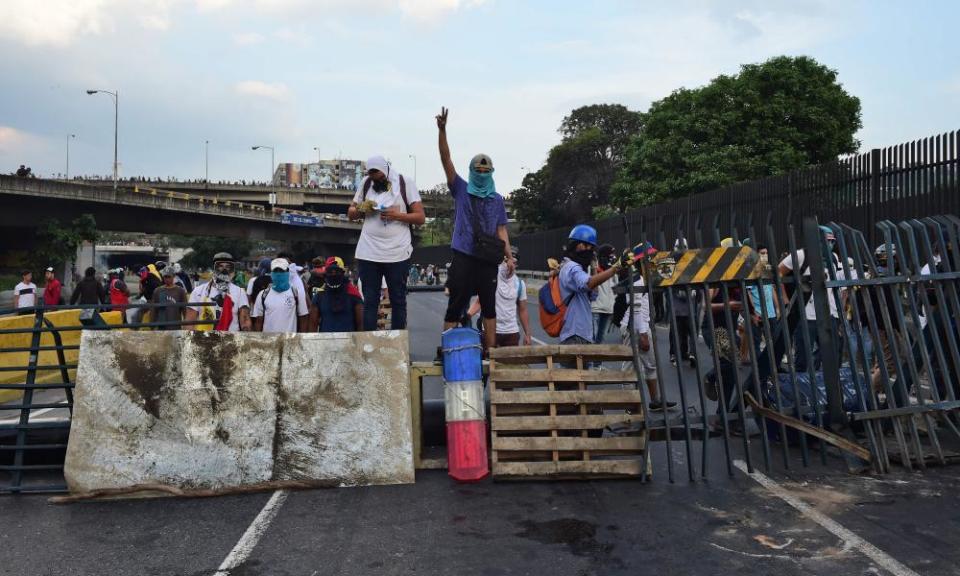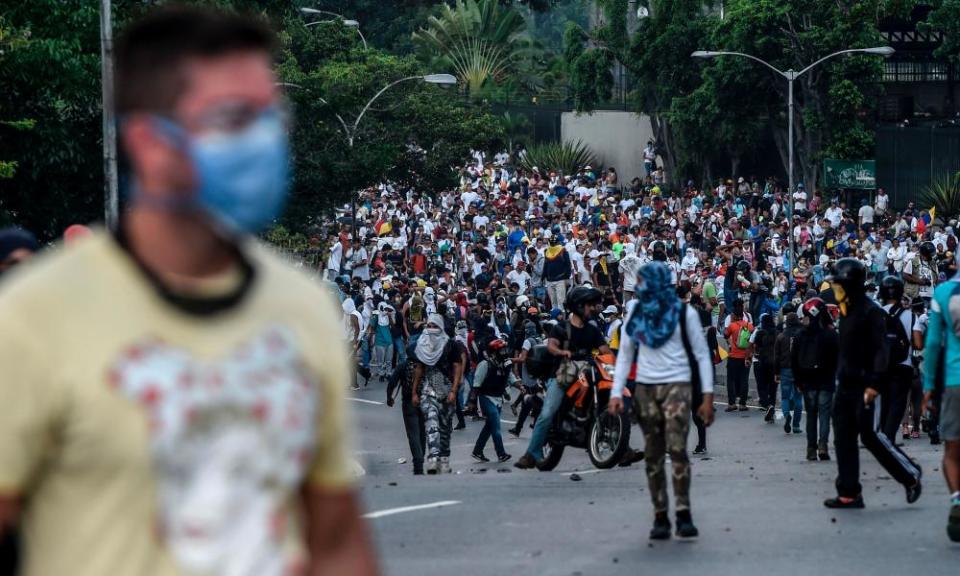Venezuela anti-government protesters paralyse major roads as more die
Turmoil has been caused by food shortages, rising unemployment and anger at president’s authoritarian restrictions on elections and democratic institutions

Venezuela’s major transport arteries juddered to a halt on Monday as opposition protestors blocked major roads and staged sit-ins across the country.
Tens of thousands of people joined the latest protests, which follow a month of anti-government demonstrations, political clashes and looting that have left at least 22 people dead.
Four people were reported to have been killed, including two in the Andean state of Mérida, and two in the western Barinas state.
The turmoil – which is the bloodiest since 2014 – has been caused by worsening food shortages, rising unemployment and anger at president Nicolás Maduro’s increasingly authoritarian restrictions on elections and democratic institutions.
In Caracas, large crowds blocked the Francisco Fajardo freeway, the largest in the capital. Some waved up-turned Venezuelan flags, a nautical signal of distress.
“I came because I want to see the end to this embarrassment of a government before I leave this world,” said 90-year-old Elba Pérez, who had walked more than two kilometres alongside her husband to join protesters. “I am quite old so I hope they hurry up.”
In Puerto Ordaz, a city in eastern Venezuela that was once a bastion of government support, protesters also blocked several of the city’s main avenues.

Carlos Márquez, a taxi driver, said he was joining the street protests because last year’s efforts to unseat the government through a signature campaign and recall referendum were denied by electoral authorities.
Marquéz said that although he expected to lose all his business for the day, the protest was worth it. “I hope the government calls for elections so that this doesn’t take a violent turn,” he said.
Unlike most previous rallies, the current wave of protests have well-defined goals: an electoral calendar, the liberation of all political prisoners and the re-establishment of constitutional norms, including the separation of powers.
The latter is a major source of concern. Last month, the supreme court briefly stripped parliament of its authority. The ruling has since been partially reversed but the opposition say the judiciary should be changed because it has put politics above the constitution.
Law student José Fernandez said he wanted to live in a country where rule of law is respected.
“We will come out as often and stay as long as we need to, until Maduro announces general elections.”
On Sunday, during his weekly televised address to the nation, President Nicolas Maduro said his party was ready to contest regional elections. “I want elections now. This is what I say as head of state, as head of government.” After last Wednesday’s huge and bloody demonstrations, he had also talked vaguely of “prompt and total elections”.
But opposition leader Henrique Capriles has said that the protests will continue until the government adheres to the country’s constitution.

